Homemade Peanut Butter Workshop
Article by Jane Meijnen

It was with great anticipation that I awoke to a stunning Saturday, excitedly looking forward to another Slow Food adventure in the outer neighbourhoods of Hong Kong. Though this day was to be much more that “just” a Homemade Peanut Butter Workshop!
We were met off the minibus by Poling Chan of O.works in the village of Kam Tin for what was the initial stage of the adventure – a guided walk around the narrow alleyways of this historic walled settlement of the indigenous Tang Clan, since the 15th century. Now rated a Grade 1 historical ‘building’.


However the first stop was not the old houses, or historic ancestral or study halls, or temples – but rather an ancient 400-year-old Banyan tree, or Kam Tin Tree House as it is more widely known. Which has completely engulfed the long since ruins of a house in what is possibly the largest tree by diameter in Hong Kong.

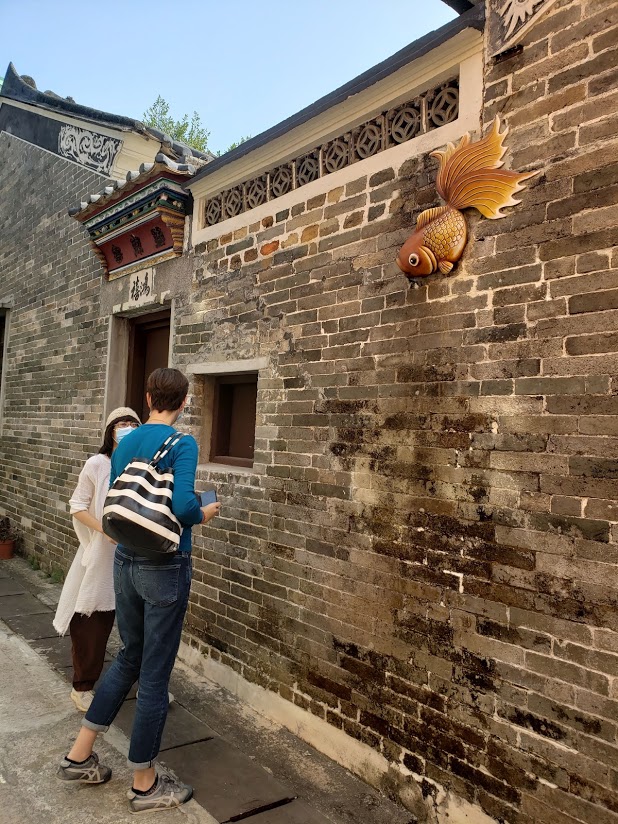
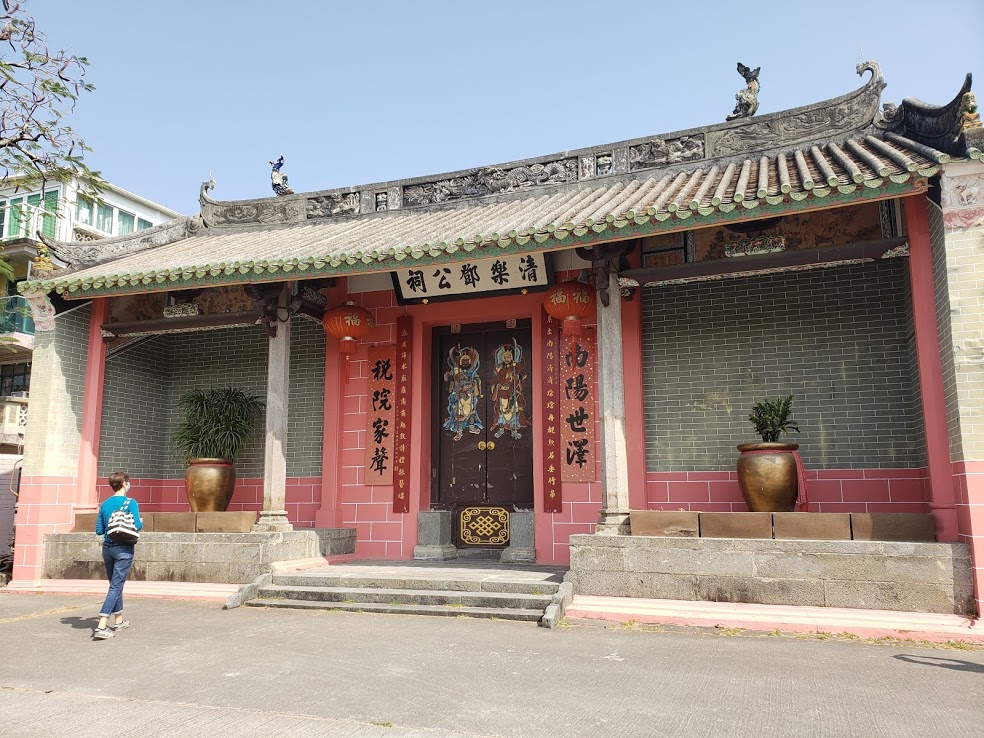
After the voyage of discovery through this historic slice of one of the Five Great Clans of the New Territories, interspersed with blooming trees nurturing the bees for the next honey season, we go to Poling’s home for our making-peanut-butter workshop. And no ordinary peanut butter was this!
Evoking a little rural room filled with nature and cottage craft artistic objects, we see small peanut bushes hanging to dry. Here was my first lesson – peanuts grow underground! Locally grown organic peanuts, with each plant producing 25 to 50 peanuts and taking 4 – 5 months to grow, when dug up they are hung to dry for 1 week in the sun.

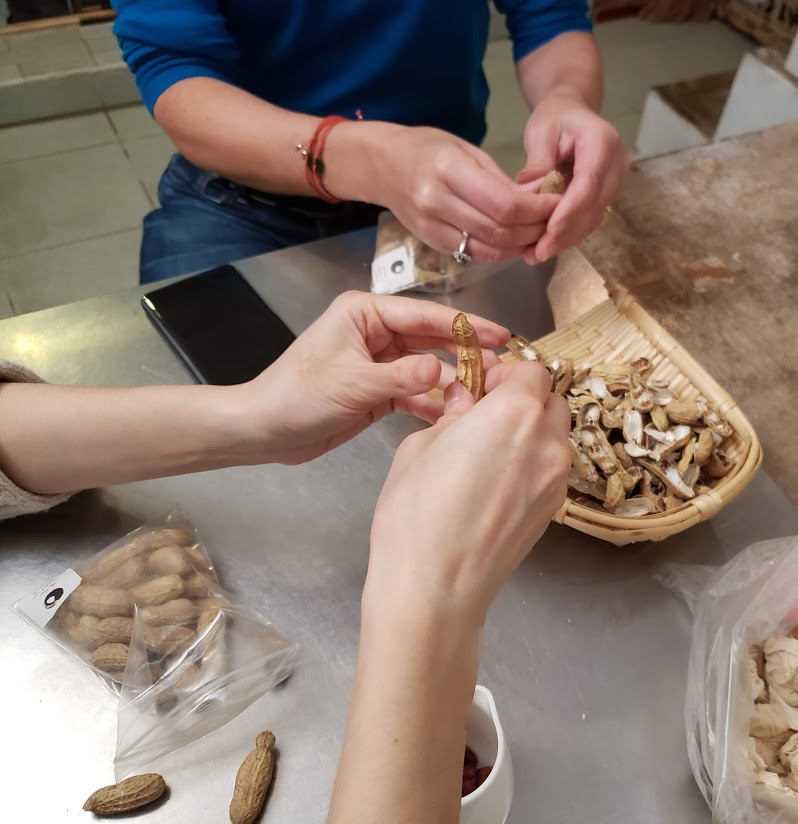
Although some of our peanut butter peanuts were pre-roasted, we had a small bag each person was to shell and gather the prized peanuts for roasting. Roasting nuts (and seeds) enriches their flavor.
The cooled nuts are then bagged and bashed on the table, to separate from their skins. Through a thick sieve the skins are then discarded. But don’t worry if all the skins don’t separate, or you grow weary of bashing, this is just to lose as much as possible.
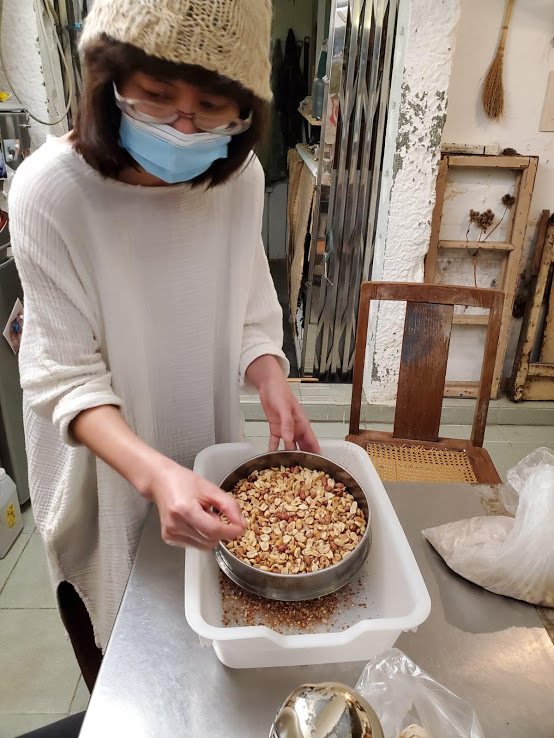

Now comes the blending. Which is not to be taken as a rushed task, but rather lovingly carefully coaxed in to your delicious own jar of peanut butter. Besides, we don’t want the blender to overheat!

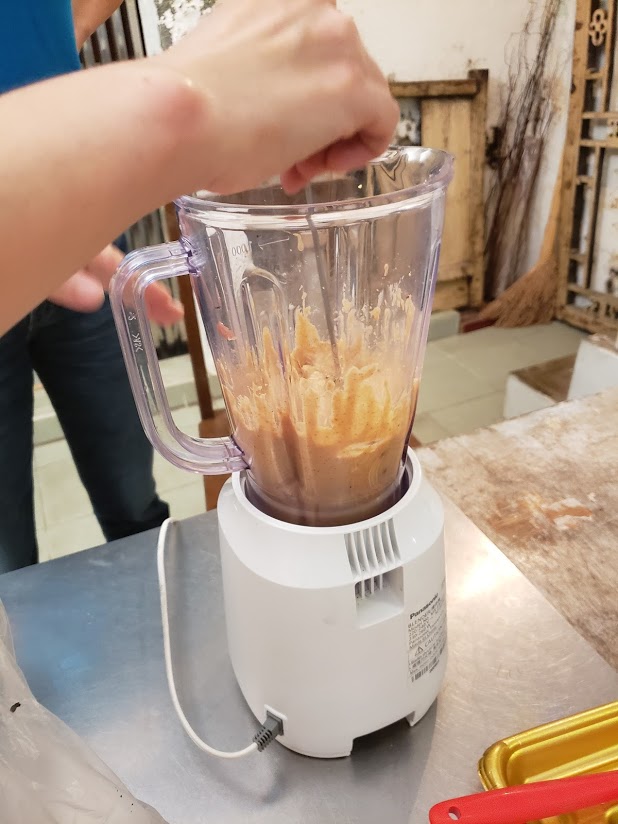
Blend…3 buzzes…pause…and stir. And repeat until roughly chopped. For the crunchy peanut butter fans, watch this stage carefully as when the right moment arises you spoon out roughly chopped nuts to fill approximately one quarter of the jar. Then continue to buzz…pause…stir…till a rich shiny smooth paste.
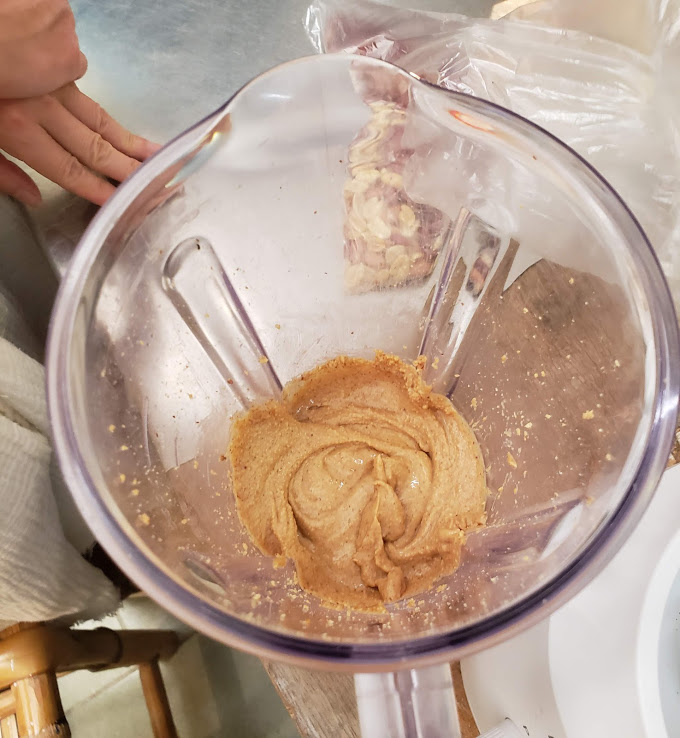
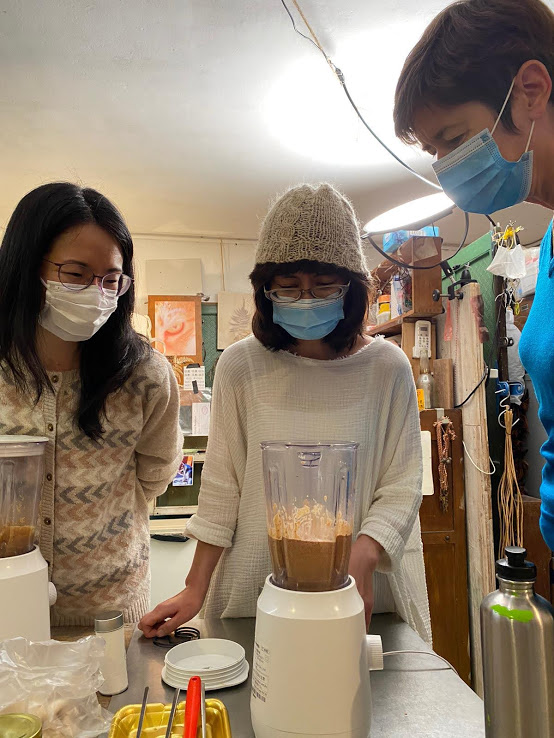
The paste will become runny and oil will start to appear on the surface but it is important to keep up the blend…pause…stir routine until no more oil appears on the surface. At this point you may also add a handful extra of roasted nuts with their skins as this will add a darker color dimension to the paste. It is ready when a large air bubble plops to the surface when the blender is turned off.

And now for Lesson #2 – the fresh peanut butter ‘as is’ has a shelf life of about one month. But add a small pinch of dried (organic) rosemary acts as a preservative extending the shelf like to 12 months. This does not add a detectable rosemary flavor. For the more curious taste buds, an additional 4.5 to 5 grams of dried rosemary was added so we could detect that hint. Along with ground Himalayan rock salt and local honey both serving as flavor enhancers, though again not detectable.

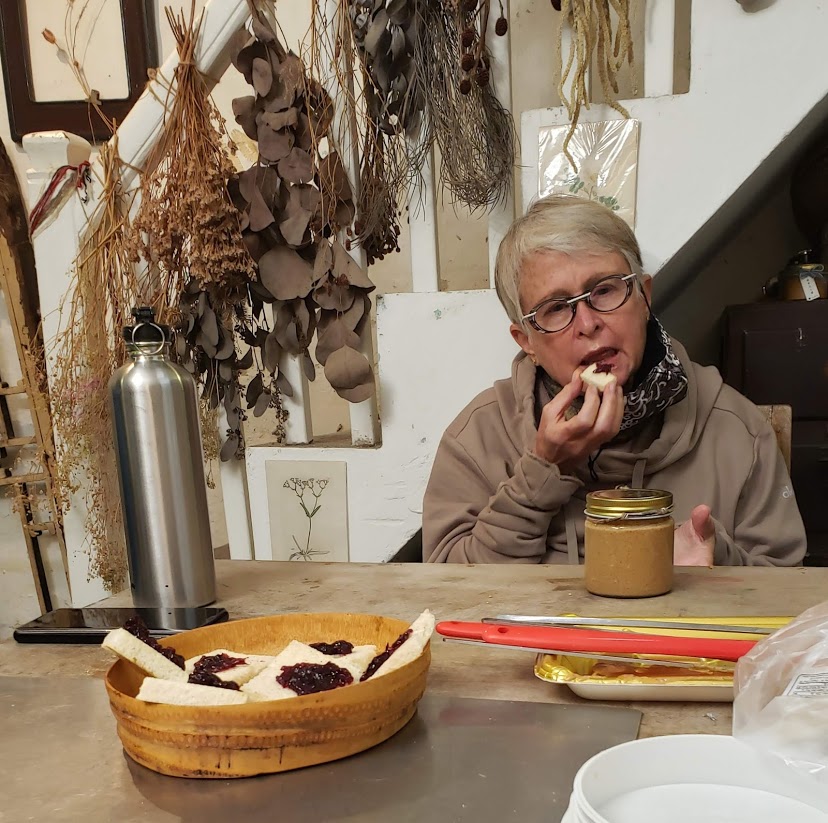
What an exciting accomplishment! And under the humble graceful friendly watch of our host.
But the adventure didn’t stop here. Back out in to the village and in to the surrounding countryside for a visit to a small organic vegetable farms. A patch of land owned for a few generations and current tendered by an elderly woman who clearly had the modest touch to produce happy healthy vegetables. What a magic way to end the day.
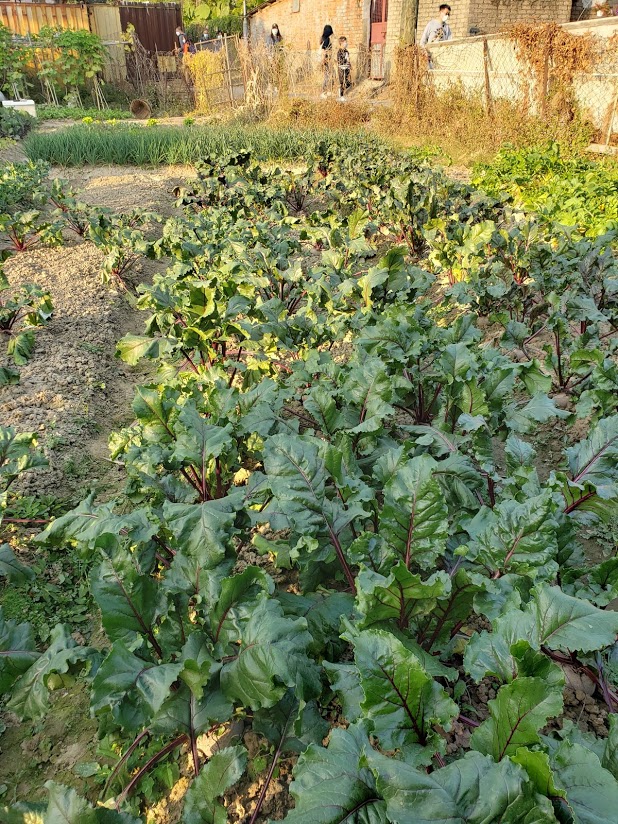
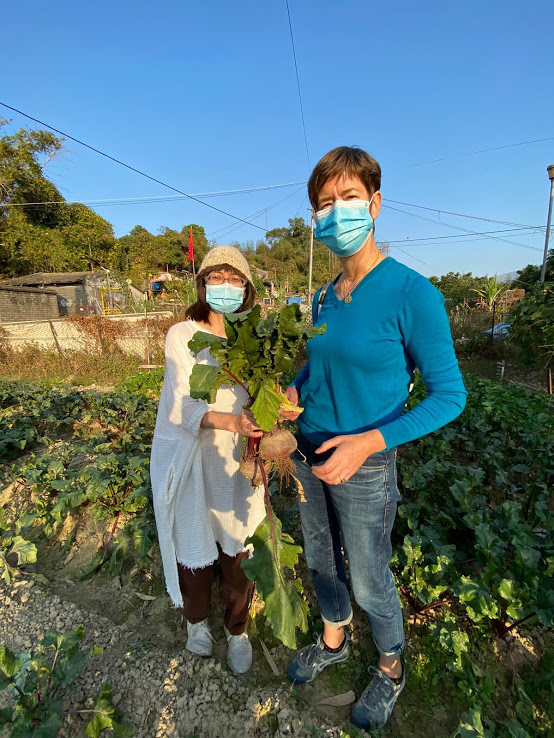
So next time you want a home grown cultural tour through a historic slice of Hong Kong, chaperoned by the enterprising Poling Chan leading you in to every sense of the words – Homemade Peanut Butter Workshop – look no further. Who said life in Hong Kong was uninspiring…thank you Slow Food!